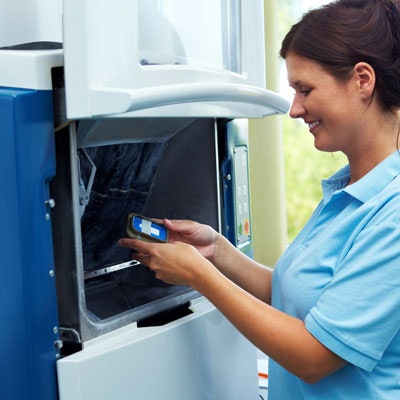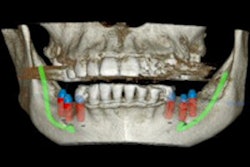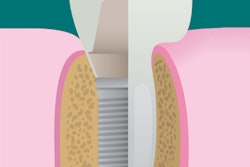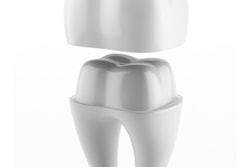
Is a CAD/CAM framework an alternative to a cast framework when restoring an edentulous arch? A new study followed 15 patients with 20 edentulous arches for almost four years to find out.
While these frameworks held up well, the procedure itself has a steep learning curve, the researchers reported in the Journal of Clinical and Experimental Dentistry (October 2018, Vol. 10:10, pp. e1045-e1048).
"The results of this retrospective clinical report suggest that CAD/CAM-milled titanium frameworks using the software and scanner presented in this study fit accurately and can be a viable treatment option to restore edentulous arches," the study authors wrote.
The study was led by Ilser Turkyilmaz, DMD, PhD, a clinical associate professor in the department of prosthodontics at the New York University College of Dentistry.
Implant support
Implant-supported overdentures are an established treatment used for edentulous patients. Recently, the use titanium frameworks created by CAD/CAM technology have become a viable treatment method, according to the researchers. In this study, they sought to analyze the clinical performance of 20 full-arch, implant-supported, titanium frameworks using CAD/CAM technology.
“Only clinicians and dental technicians with adequate knowledge and experience should [be] involve[d] in this treatment due to [the] steep learning curve.”
The study included 15 patients (nine women) from the University of Texas School of Dentistry clinics. Their mean age was 70, and the patients had a total of 104 implants (NobelReplace Straight/Tapered Groovy, Nobel Biocare) placed using a one-stage protocol. After planning the location of all implants via 3D software (NobelClinician, Nobel Biocare), clinicians placed four to eight implants in each edentulous arch based on anatomical measurements.
In total, 20 edentulous arches were treated with full-arch implant-supported fixed dental prostheses utilizing CAD/CAM-milled titanium frameworks. All patients were followed up for at least 44 months.
The researchers evaluated the clinical performance of the implants and restorations for implant/prosthesis survival, framework fit, marginal bone levels, and maintenance requirements. Implant survival rate was greater than 99% (one implant was lost), they reported. None of the prostheses needed to be replaced, for a success rate of 100%.
The team verified the fit of the frameworks by the single-screw test and digital radiographs. No sectioning or welding was needed for any framework; all frameworks fit accurately, the study authors reported.
They also noted that 16 occlusal adjustments and five broken denture teeth were repaired chairside during the study period.
Steep learning curve
The authors listed no study limitations.
While the study results suggest that CAD/CAM-milled titanium frameworks can be used as an alternative to cast frameworks to restore edentulous arches, the authors cautioned that this is a procedure best done by an experienced practitioner.
"It is recommended that only clinicians and dental technicians with adequate knowledge and experience should [be] involve[d] in this treatment due to [the] steep learning curve," they concluded.



















